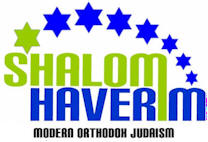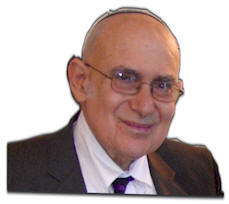Parashas BaMidbar - 5776
Sefer BaMidbar has been called the
Saddest Book of the Bible.
The Jewish People had received the Torah
from HaShem a mere seven weeks after
their Exodus from Egypt. They had been
slaves in Mitzrayim for more than 200
years. The first delivery of the Torah
had ended in tragedy; out of impatience,
the Jewish People had worshipped a
Golden Calf, instead of waiting another
day for the return of Moshe. Moshe had
smashed the great gift from HaShem. The
Torah says that HaShem wanted initially
to destroy the Jewish People, and start
over from Moshe. But his faithful
servant persuaded him not to, and to
give His People another chance. On Yom
Kippur, Moshe returned with a second
copy of the Ten Commandments, which His
People received with joy.
As atonement for the Golden Calf, the
People built a “Mishkan,” where the
Kohanim were charged with the bringing
of sacrifices. The end of Sefer Shemos
concerns itself with the building of the
“Mishkan,” and Sefer VaYikra is called
“Toras Kohanim,” which describes the
Laws of the Priests, and the Sacrifices.
Sefer BaMidbar brings us back to the
People of Israel, about to set forth for
the land which was promised by HaShem to
their forefathers. A description is
given of the formation of the Twelve
Tribes around the “Mishkan,” and a
description follows of the Leviim who
were stationed even more tightly around
the “Mishkan,” which contained the Holy
Ark, with the “luchos,’ as guards. When
the Camps of Israel moved, the “Mishkan”
was taken apart, and its component parts
were loaded onto wagons.
A census is taken of the Tribes, every
male from twenty years and up, everyone
who is of military age, and the
resulting number is some 600,000. The
Tribe of Levi is not included in this
census. Rather, a separate census is
taken of this holiest Tribe, because
they had not participated in the Sin of
the Golden Calf, every male from the age
of one month and up.
They were now ready to resume their
journey towards the Land of Israel,
which was only an 11-day distance from
where they were. Did this generation of
Jews ever make it to Eretz Yisroel? I’m
afraid not. They didn’t make it there
because they believed the report of the
“Meraglim,” who reported honestly what
they had seen in the Holy Land. And the
people were gripped by a “slave
mentality.”
“They returned from spying out the Land
at the end of forty days…They reported
to him and said, ‘We arrived at the Land
to which you sent us, and indeed it
flows with milk and honey, and this is
its fruit. But – the people that dwells
in the Land is powerful, the cities are
very greatly fortified, and we also saw
there the offspring of the giant…’ ” (Bamidbar
13:25, 27-28)
“Calev silenced the people toward Moshe
and said, ‘We shall surely ascend and
conquer it, for we can surely do it!’
But the men who had ascended with him
said, ‘We cannot ascend to that people
for it is too strong for us! They
brought forth to the Children of Israel
an evil report on the Land that they had
spied out, saying, ‘The Land through
which we have passed, to spy it out, is
a Land that devours its inhabitants!’
…The entire assembly raised up and
issued its voice; the people wept that
night…So they said to one another, ‘Let
us appoint a leader and let us return to
Egypt!’ Moshe and Aharon fell on their
faces before the entire congregation of
the assembly of the Children of Israel.
And Yehoshua bin Nun and Calev ben
Yephuneh ripped their clothes. They
spoke to the entire assembly of the
Children of Israel, saying: ‘The Land
that we passed thru, to spy it out – the
Land is very, very good...But do not
rebel against HaShem!’ ” (BaMidbar
13:30-32, 14:1,4,5-7,9)
The People were punished and they had to
wander in the Wilderness for forty
years, as many days as the Meraglim had
spent in Israel, and their children, who
had not been slaves, were able to enter
the Holy Land.
Thousands of years later, the Jewish
People has established the State of
Israel, and re-conquered Yerushalayim,
and looks forward to the Aliyah of our
entire People, and the arrival of the
Mashiach.
L’Illuy Nishmas beni, Aharon Baruch
Mordechai ben Pinchas Menachem









